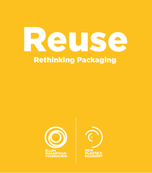Research undertaken by SPL on behalf of Zero Waste Scotland and NHS Scotland has highlighted potential opportunities for applying circular procurement models to ICT, Furniture, Walking Aids, Small Electrical Medical Devices and Single Use Devices. SPL worked with sub-contract partners Eunomia (https://www.eunomia.co.uk/) and Ditto Sustainability (https://www.dittosustainability.ai/).
In conjunction with suppliers the project determined the business case for transforming approaches, taking into account financial, environmental and social factors as well as critical considerations such as clinical effectiveness and safety. There are undoubted challenges to adoption of circular approaches. These include ensuring that clinical concerns are fully addressed and compliance with regulations and guidance (such as MHRA guidance on reprocessed and remanufactured devices) is absolute. However, applying circular approaches has significant potential to deliver financial, environmental and social benefits. The work has highlighted the willingness of many suppliers to be part of this. Suppliers however need clarity in the NHS organisation’s objectives and timescale so that they can plan and adjust as necessary. They often need help to be able to do this. Zero Waste Scotland will use the outcome of this work to develop follow on piloting and testing. SPL is delighted to be involved in this transformative work. SPL has worked with healthcare organisations including Department of Health and Social Care, Public Health England, NHS Trusts and Boards, NHS Supply Chain, procurement hubs for many years. The Environmental Audit Committee (EAC) has conducted a review on UK national food security and the impacts of climate change, and a dependency on imported fresh food. They report that the UK produces an estimated 10 million tonnes of food waste every year, and food production contributes up to 30% of total greenhouse gas emissions.
In the future, extreme changes in temperature and rainfall, could increase the spread of livestock disease, and draught impacting crop failures. Pressure is now placed on the government to establish food waste reduction targets throughout the food supply chain. Read more here. A recent IEMA report states that in 2016, the buildings sector was responsible for 39% of worldwide energy-related emissions, and that 11% of those emissions came from the construction industry.
In the UK alone, around 200m tonnes of materials are consumed by construction each year, and 61% of all waste can be related to construction. Whilst across Europe, more than 800m tonnes of construction and demolition waste are generated every year. There is therefore enormous scope to implement circular economy principles, leading to significant cost savings. The Buildings As Materials Banks (BAMB) project was established to “create ways to increase the value of building materials, primarily by designing out waste and creating circular solutions”. Read in more detail here. |
Archives
July 2024
Categories |
- Home
- About
-
Our Work
- Scottish Government
- Driving emissions reduction in supply chains
- Buying Social Justice - equality in procurement
- World Bank - Africa and Caribbean Sustainable Public Procurement
- America - OAS and IDB
- Jamaica - public procurement
- India - sustainable procurement training
- SPL in Africa
- ITAIPU Binacional and Latin America
- City of Greater Geelong
- Marrakech Task Force
- Health and Social Care
- Greater London Authority
- Innovation in procurement
- Circular Economy
- Plastic Waste Reduction in Canada
- SPL Blog
- Contact
Site powered by Weebly. Managed by netnerd.com
Photos from Eric Kilby, andreboeni


 RSS Feed
RSS Feed
